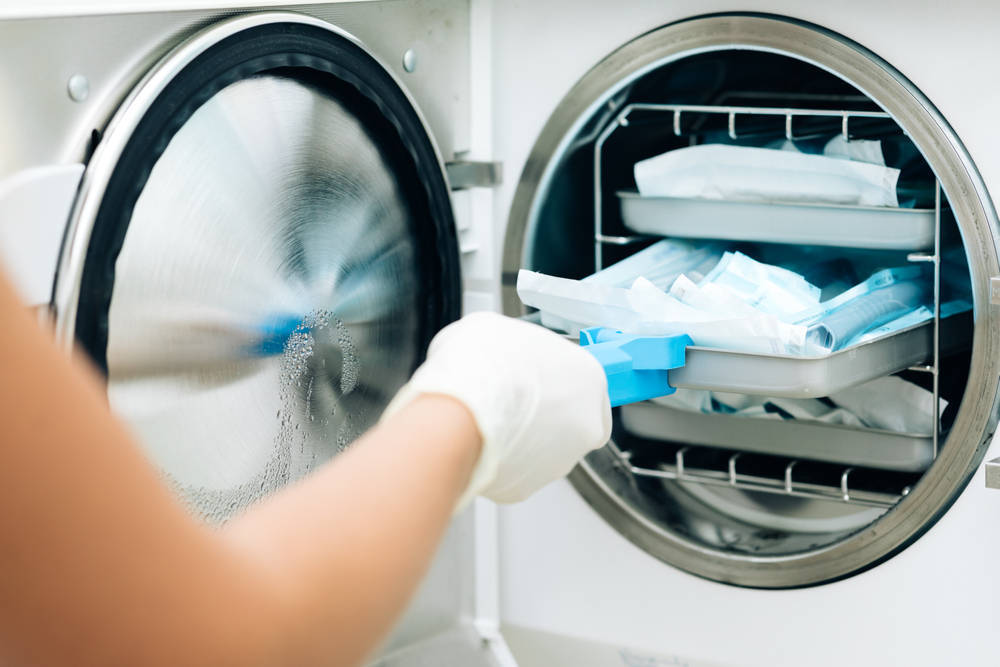Introduction
Sterile processing technicians make up a significant part of the medical field. They collaborate with other technicians on sterilization packaging, dispensing, and packaging processes. They help ensure that drugs and other sterile items are properly stored and dispensable by ensuring that proper processes are followed at every step. A sterile processing technician can be paid up to $43K each year and earn an average of approximately $30k per year as per Indeed.com (for more details on pay rates, please refer to the following article).
What is a Sterile Processing Technician?
A sterile processing technician is a medical technician who prepares equipment that is used during surgeries and other procedures.
The job of a sterilization processing technician involves maintaining the hygiene of surgical instruments such as scalpels and scissors. At the same time, they’re being made by washing them in a disinfectant solution before sterilization. They are also responsible for ensuring that the tools they are preparing aren’t infected with bacteria or viruses.
How Much Sterile Processing Technicians Make?
The average wage for the sterile processing technician is $19.69 per hour, as per Indeed.com. This means you could make between $27k and $31K annually, based on your work hours and experience level.
If you’re looking to improve the amount you earn as a sterile processing technician, think about working for a company with more clients and training opportunities available; this will increase your chances of being promoted within the organization or getting promoted to another department with greater opportunities for growth than within one department (such as customer service).
How do you become a Sterile Processing Technician: Educational and Training Requirements
To become a sterile processor tech, you must complete the education and training requirements set forth by your state’s healthcare facilities.
- Training: Many states require that candidates complete a training course before becoming certified sterile processing technicians. The courses typically last one year and include medical terminology, anatomy, microbiology, and other relevant topics.
- Education: Candidates must take written tests covering materials taught in the classroom component of their education to be certified as the sterile processing technicians of every state.
Sterile Processing Technician Certifications and Licenses
There are many certificates available to technicians who work in sterile processing. There are many certifications provided by the Association for the Advancement of Medical Instrumentation that include:
- Certified Professional Medical Technician (CPSC-SCT)
- Certified Operating Room Assistant (COOR)
- Certified Operating Room Specialist (CORS)
Each certification requires that you attend an educational session and pass both written and practical exams. The best way to get certified is to simultaneously pass the written and practical tests. However, you will lose your certification status forever when you fail any of these exams twice within five years. This isn’t necessarily a bad thing. This is just a sign of pressure to accomplish this goal before it’s taken away!
Sterile Processing Technician Career Outlook

The sector of sterile processing technicians is increasing. According to the U.S. Bureau of Labor Statistics, There will be 17600 additional sterile processing technicians by 2026 (76 percent). The jobs, as per the BLS, are expected to pay an average of $36 per hour based on your location and level of knowledge. However, the pay can differ depending on where you work and what firm you are employed by.
There are many options to become a technician for sterilization.
- Take classes at an accredited school like https://www.youtube.com/watch?v=7C4t-4YV7wQ. You could also earn money during your time at school!
- As an apprentice, you will work with an individual who has been taught by themself or knows how the system functions inside out. They can teach you how things function before leaving their job, which means you’ll have more money coming into your pockets every month instead of going towards rental costs because these apartments aren’t cheap either!
A career as a sterile processing tech is a fantastic way to enter the medical field.
As a sterile processing technician, you can be employed in a medical environment. Your skills can be utilized in many situations and work with different individuals. As long as you have the right training and certificate, it’s impossible to predict what job security you’ll get!
Conclusion
A sterile processing technician can be a great way to get into medicine. With all the training you require and the certification requirements. Additionally, it’s a great way to make money while in school.
Martinson College was established to be a vital element of the industry’s ongoing struggle to improve the standards of Central Services and Sterile Processing Departments (CS/SPD) in healthcare institutions across the globe, particularly in the United States. Our objective is to educate the community about the necessity of reusable medical device sterilization, decontamination, and reprocessing.
Read More: Advantages of Energy Efficient Windows
